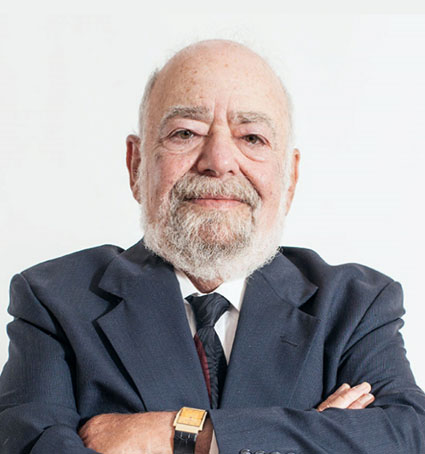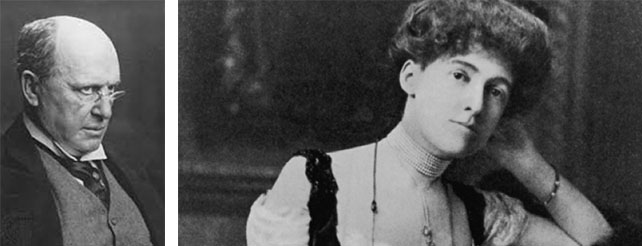Real Property Law
Part 2 Interview With Roger Bernhardt, Real Property Expert/Professor/Author

So I’m here with Roger Bernhardt, the famous California real estate professor and writer and also of counsel with the Tour Sarkissian Law Offices in San Francisco, CA. This is actually part II of a two part interview with Professor Bernhardt. Part I can be found HERE.
So I took the liberty of reading some of your online reviews as professor and wondered if you could comment:
Brilliant guy, older, well dressed and certainly quirky.
Bernhardt: Certainly older (now 85), but still experting, and my family says I’m not yet senile (but can they be trusted?).
Prof. Bernhardt has little to no desire to be an effective professor.
Bernhardt: What an insult! I constantly rewrite my class notes to make them work better. I know it is trite to think so, but I believe the students have changed and only want to pass the bar rather than learn to think about matters.
Uses his own textbooks, has an open exam.
Bernhardt: True. My casebooks try to avoid including “wrong” decisions that let the professor jump up-and-down and be dramatic. Instead I like to force the students to think, “what is the “right” rule?” My exams are open book so as to eliminate the artificial requirement of forcing the students to try to memorize everything. In practice, they will simply go to the appropriate rule book to get a decent answer to the client’s concern.
Has a good sense of humor and is down to earth.
Bernhardt: Yes. Of course, it is all true.
Be sure to get his black letter outline and nutshell for the final.
Bernhardt: It is true that almost everything I say in class can found in one of my books. I secretly wonder whether a bright person could pass the bar just by reading my books.
Very unorganized for lectures and tends to ramble on about intricate little exceptions to the rules.
Bernhardt: My lectures are closely planned but could deviate whenever a student’s question takes me somewhere else that I think is appropriate for everyone to know.
What was your favorite class to teach and why?
Bernhardt: Mortgages. The subject is super scary due to the fundamental absurdity of all of its doctrines. I enjoy the terrifying effect that has on students and practitioners alike. I also enjoyed teaching most of my other courses. Tax was the most frightening and Land Use was too iffy. Property was always gratifying.
Tell me about your teaching experiences teaching Property. Did you have your own style and theories on how to teach it?
Bernhardt: I can’t review the whole course for you in this interview but I can mention some of the quirks that confront a teacher of the course. For instance, if a professor begins the course with adverse possession, he/she will have to fight off the emotional need of students to think of it as a land theft. I prefer to think of adverse possession as just another example of our statute of limitations. I think class discussion of adverse possession makes more sense if you ask questions from the point of view of the absent owner. What actions should the landowner have taken is a better way, rather than the perspective of an incipient adverse possessor out to grab someone else’s land.
Don’t most other professors start their Property courses with Estates in Land? Beginning with that topic is a great way to induce students to drop out of law school and it also gives them a very distorted view of what law practice is like. Estates has too many right/ wrong answers and the questions are now irrelevant.
What can you say about teaching concurrent ownership?
Bernhardt: I prefer to teach that from the front end rather than the rear end. Instead of saying A dies and what does B get if they were joint tenants, I have one of the parties visit their attorney to ask whether to be a joint tenant or tenant in common (or spouse). My ostensible client has a script of course – where one of the pair is considerably older or richer than the other. “Basis” is implicated here which is a frightening concept to newcomers. The same sort of concerns are then asked about creditors.
Don’t ask me about easements or covenants because I have never found a way to make them glamorous.
What are some challenges with teaching landlord and tenant law?
Bernhardt: We really ought to separate residential landlord tenant from its commercial counterpart and move that topic into some kind of welfare category. It is very difficult to teach in a field where there is so little room to maneuver.
What do you find gratifying about teaching real estate transactions?
Bernhardt: It covers about 90% of the problems practicing attorneys face and much of it is counter intuitive. For instance, most students are startled with this notion of how the broker earns a commission… finding a “ready willing and able buyer” even if the offer is rejected. It is also fun to disabuse the students of the notion that the CAR forms are sacred and must be followed. Delivery of deeds is a silly notion, but it allows me to die of heart attack just before my grantee gets close enough to take the deed from me. On the buyer’s performance side, this is where I convert to mortgages. I race through title covenants. Finishing with the income tax is a terrifying but practical way to wrap up the course.
What was the most rewarding aspect of teaching?
Bernhardt: At the exam review sessions at the end of this semester, I get to see how much everyone has learned.
Which was more fun, teaching or writing?
Bernhardt: It is very gratifying to be able to express my thoughts on a page for others to review and share.
What did you like the least about teaching and why?
Bernhardt: It got too common for students to just ask me whether the last point I made would be on the exam.
I think my favorite class with you was the Mortgages and Deeds of Trust, Foreclosure class, did you invent that class?
Bernhardt: Mostly. There was an old casebook once out called Security Transactions; I taught out of it once but found it too bookish.
Ha ha, that is pretty funny…Professor Bernhardt thought something was “too bookish.” But it seems that no one really thought to do the research you did in that area, can you tell me what sparked your investigation of that area of law?
Bernhardt: Lawyers told me how scared they were how frightened they were in trying to foreclose without getting in trouble or lose their security and that gave me the idea of putting those problems at the front of the book.
So you have over 320 articles you wrote over time, which one is your best article (see website).
Bernhardt: Once I finish an article I don’t go back and think about it because the next task I have assigned myself forces me to write more articles on the next cases that have come down. Incidentally, the tally is over 320 because SSRN the publisher has a calendar requirement that excludes even more.
Are there any articles that you wish judges would read?
Bernhardt: Many of my articles, although written in the guise of advising lawyers and how to change their behavior (Thus the “Mid-Course Correction”) can be taken as silent criticisms of what judges have said and camouflaged wishes the other way. But I don’t want to be seen as an impractical scholar more concerned with doctrinal purity than with sensible behavior in the real world.
One time you told me that you like to contact the California Association of Realtors and inform them about parts of their forms which are incorrectly written. What are some of the flaws you see in the CAR RPA today?
Bernhardt: I have been surprised at some of the reactions of the CAR RPA to major judicial decisions, but they have not invited me into their inner councils. I expect they have practical knowledge which outweighs what I have said.
The book of yours I continue to use the most is the Deeds of Trust and Foreclosure law CEB book, what’s your favorite book you wrote and why?
Bernhardt: I don’t keep up with my books. Revising is not much fun. After I have gotten a book off, I try to turn it over to someone else to keep it current and to free me up to go onto another topic.
While we’re on it, what your favorite book period. Like one you’ve read at least 3 times.

Bernhardt: I like Henry James and Edith Wharton
So you did several visiting professorships, Paris, Fordham and Cardoza, Arizona, and Cal…Which was the most memorable and why?
Bernhardt: French students are completely uncomfortable challenging their professors, which made it difficult to get a good discussion going. In New York, the students were sometimes hard to shut up.
So if they made a movie of your life, which actor should they pick to play you?
Bernhardt: I don’t go to movie houses, so I can’t say. Someone taller and thinner and with more hair on his head.
Have you ever thought to change your position on the Barry Bonds home run ball case? Rumor has it you were not paid for your work on that case.
Bernhardt: I thought Popov had possession of the ball even though it was knocked out of his glove; he had given all the right signs to the world that he intended to hold on to it. The judge’s notion of split possession makes no sense to a property lawyer, although it may be go to the equity. And yes, I did have to sue for most of my fee but was defeated when the client filed bankruptcy.
Rumor has it that you were being cross-examined as an expert and shut up the opposing counsel by declaring, ““What a profoundly ridiculous question that is!” Do you remember that?
Bernhardt: No, and I can’t believe I said that…evern. Although I have thought it. Really bad
questions are often occasions to show off or convert to something that will
persuade a jury.
